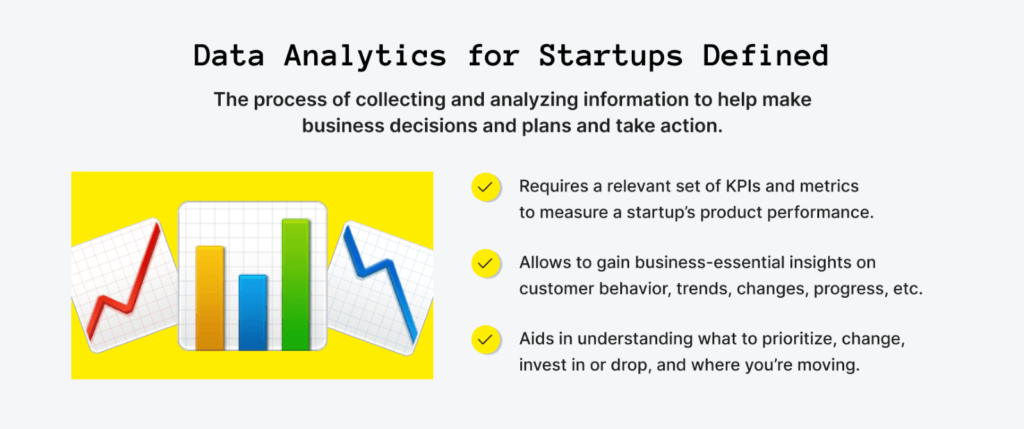Data Analysis In Startups: A Guide To Success
In today’s data-driven world, it is more important than ever for startups to be able to effectively analyze their data. By doing so, they can gain a competitive advantage and increase their chances of success.
This post will discuss the importance of data analysis in startups and provide some tips on how to get started.
Data analysis is the process of collecting, cleaning, and analyzing data to extract meaningful insights.
Why is data analysis important for startups?

There are many reasons why data analysis is important for startups. Here are a few:
To understand your customers. Data analysis can help you to understand your customers’ needs, preferences, and behavior. This information can be used to develop better products and services, create more targeted marketing campaigns, and improve the customer experience.
To make better decisions. Data analysis can help you to make better decisions about all aspects of your business, from product development to marketing to operations. By understanding your data, you can identify opportunities, reduce risks, and allocate your resources more effectively.
To track your progress. It can help you to track your progress and measure the success of your business initiatives. This information can be used to identify areas for improvement and make necessary adjustments.
How to get started with data analysis in your startup
If you are new to data analysis, there are a few things you can do to get started:
Identify your goals. What do you want to achieve with data analysis? Once you know your goals, you can start to identify the types of data you need to collect and the methods you need to use to analyze it.
Collect the right data. The quality and completeness of your data will have a big impact on the accuracy of your results. Make sure to collect data from all relevant sources, such as your website, customer surveys, and social media.
Clean and prepare your data. Once you have collected your data, you need to clean and prepare it for analysis. This may involve removing duplicates, correcting errors, and formatting the data in a consistent way.
Choose the right tools and methods. There are many different tools and methods available for data analysis. The best choice for you will depend on the type of data you have and the types of insights you are looking for.
Analyze your data and draw conclusions. Once you have cleaned and prepared your data, you can start to analyze it using the tools and methods you have chosen. Once you have completed your analysis, you can draw conclusions and make recommendations based on your findings.

Tips for effective data analysis in startups
Here are a few tips for effective data analysis in startups:
Start small. Don’t try to boil the ocean right away. Start by focusing on a few key questions or problems that you want to solve with data analysis.
Be consistent. Data analysis is an ongoing process. Make sure to regularly collect and analyze your data to stay up to date on the latest trends and insights.
Be transparent. Share your data analysis findings with your team and stakeholders. This will help to ensure that everyone is on the same page and that decisions are being made based on data-driven insights.
Use the right tools and technology. There are many different tools and technologies available to help you with data analysis. Choose the ones that are right for your needs and budget.
Examples of how startups are using data analysis
Here are a few examples of how startups are using data analysis to improve their businesses:
Netflix uses data analysis to recommend movies and TV shows to its users. By analyzing user viewing habits, Netflix can identify what types of content users are most likely to enjoy.
Spotify uses data analysis to create personalized playlists for its users. By analyzing user listening habits, Spotify can identify what types of music users are most likely to enjoy.
Uber uses data analysis to optimize its ride-hailing platform. By analyzing data on driver and rider demand, Uber can ensure that there are always enough drivers available to meet demand.
Airbnb uses data analysis to recommend properties to its users. By analyzing user search behavior and booking history, Airbnb can identify the types of properties that users are most likely to be interested in.
Conclusion
Data analysis is a powerful tool that can help startups to make better decisions, improve their products and services, and grow their businesses.
Get the best data analysis services for your business by contacting Werq Labs.
